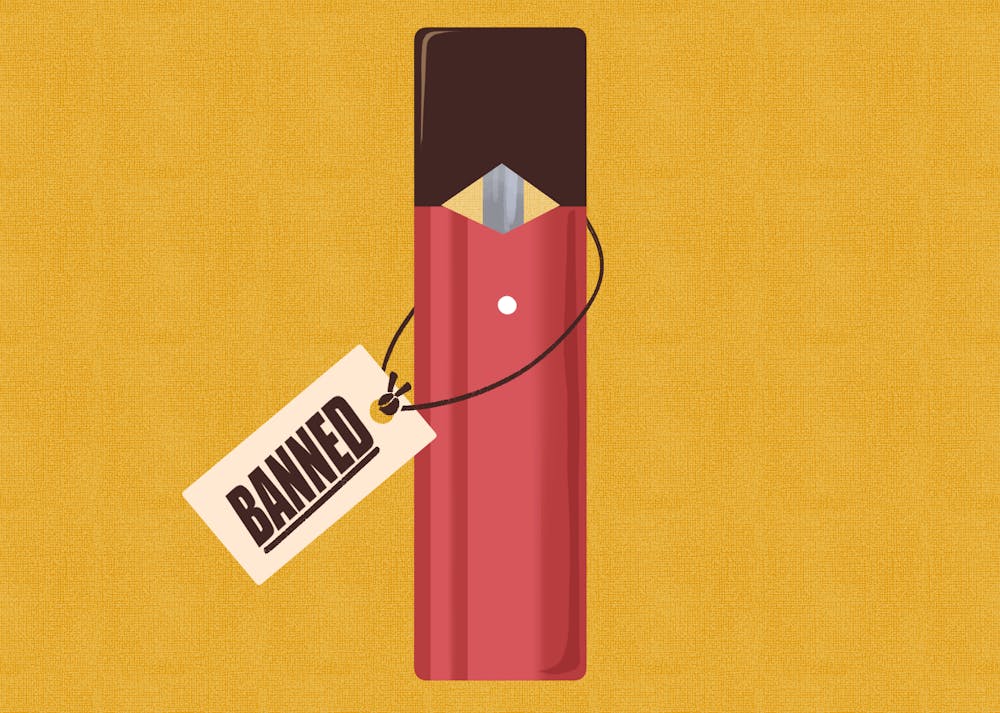Students and professors worry a ban on flavored tobacco proposed by Tempe City Council will be ineffective and drive students to more harmful products.
The ban was proposed in August 2022 and will not be voted on until next year, but there have been public meetings, feedback sessions and an online survey to hear from members of the community.
One of the city council members who proposed the ban is Joel Navarro. He said the conversation came up organically because of concerned parents and school boards talking about vaping in high schools.
"Parents had been noticing, teachers have been noticing kids underage actually are vaping at school," Navarro said. "It's easy to hide and so it was a concern that was brought up to us at the council, we decided to take a look at it and have this discussion."
He said the main goal of the proposed ordinance is to take vaping products out of the hands of teenagers. But, he said he is worried about the businesses in the city that make their money selling flavored tobacco products.
Adjunct professor and former Chief of the Tobacco Control Research Branch at the National Cancer Institute, Scott Leischow, said the main concern with this ordinance is that while it can help keep nicotine devices out of the hands of young adults, it could also prevent adults who are trying to quit smoking cigarettes and cigars from purchasing flavored vapes. He said while vapes are in no way healthy, they are a better alternative to combustible tobacco, like cigarettes.
"For some of those adults, having a flavored product might entice them to move from a combustible tobacco product, that cigarette or cigar, over to an (electronic cigarette) e-cigarette, so from a harm reduction perspective, (that's) the concern that some people raise about banning flavors across the board," Leischow said.
A ban on the sale of flavored tobacco is not unprecedented, but it is rare. California voted to uphold its ban on the sale in a ballot measure this past election, and states like Massachusetts have had a ban in place for a number of years. Tempe has taken drastic anti-tobacco steps before, notably as one of the first cities in the state to ban indoor smoking at bars and restaurants.
On a campus level, ASU says 12.7% of students reported vaping within a month-long period. However, these numbers are self-reported. A University of Michigan study said 22% of college students used vaping devices in 2019, which more than doubled in 2017.
Leischow said there are disagreements in the scientific community regarding whether a ban on the sale of vapes will work, especially as it will only be in one city. However, he believes the lack of easy access to directly off-campus stores that sell vapes can limit usage among college students who may not have the resources or desire to travel to neighboring cities to purchase a vape.
"Most college students who are able to use e-cigarettes, including flavored ones, most of them are doing it in recreational ways, when they're going out to drink or to party if they're not motivated to drink," Leischow said. "Most of them are not using it on a daily basis. Most of them are not addicted, which is a good thing."
Ananise Toth, a junior studying global management, said she does not use vaping products herself but thinks the ban would do more harm than good for the students and the city.
"I think banning the sale of them in Tempe would not benefit anyone — the students, the business owners," Toth said. "People will find ways to vape regardless, and there's many local businesses that live off of vape sales."
Toth also said she thinks the potential ban would lead students into smoking cigarettes and other combustible tobacco products.
Navarro and Leischow said an underground market of vape sales could emerge if flavored vapes are banned citywide. Navarro said there are still discussions to be had over the validity and efficacy of a potential ban, and those will go into next year.
Edited by Reagan Priest, David Rodish, Piper Hansen and Grace Copperthite.
Reach the reporter at sbrenna5@asu.edu and @shanebrennan36 on Twitter.
Like The State Press on Facebook and follow @statepress on Twitter.

Shane Brennan is the former Editor-in-Chief at The State Press and an ASU alum. He was a sports and politics reporter, before becoming the editor of the politics desk. He has covered local and state politics for the Arizona Capitol Times and Cronkite News.




